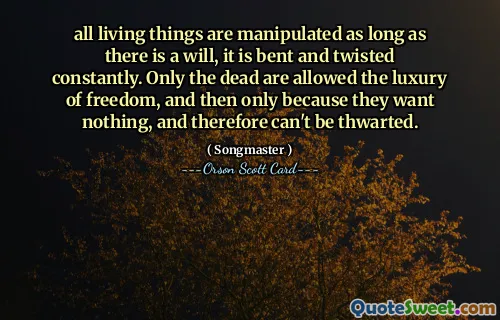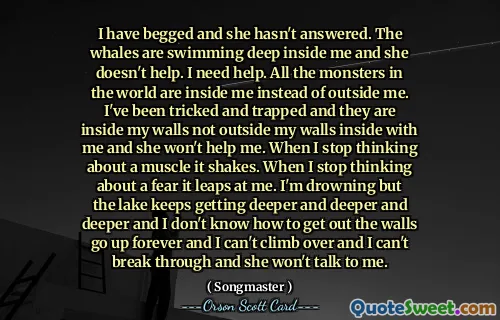
I have begged and she hasn't answered. The whales are swimming deep inside me and she doesn't help. I need help. All the monsters in the world are inside me instead of outside me. I've been tricked and trapped and they are inside my walls not outside my walls inside with me and she won't help me. When I stop thinking about a muscle it shakes. When I stop thinking about a fear it leaps at me. I'm drowning but the lake keeps getting deeper and deeper and deeper and I don't know how to get out the walls go up forever and I can't climb over and I can't break through and she won't talk to me.
The narrator expresses deep emotional turmoil, feeling abandoned and trapped in their struggle. They plead for assistance from a person who remains unresponsive, further intensifying their despair. The imagery of whales residing within them symbolizes the weight of their fears and anxieties, emphasizing a sense of internal chaos rather than external threats. They articulate a feeling of being overwhelmed by their inner demons, which they can’t escape from, as the walls of their own making confine them deeper into hopelessness.
This internal battle is depicted as a drowning experience, where every attempt to alleviate their fears only seems to amplify them. With each moment of introspection, the pressure mounts, and the walls of their despair appear insurmountable. The narrator feels as though their pleas are unheard, leaving them isolated and helpless as they face their monsters alone. In this poignant reflection, they capture the painful struggle between seeking help and feeling trapped within their own mind.








